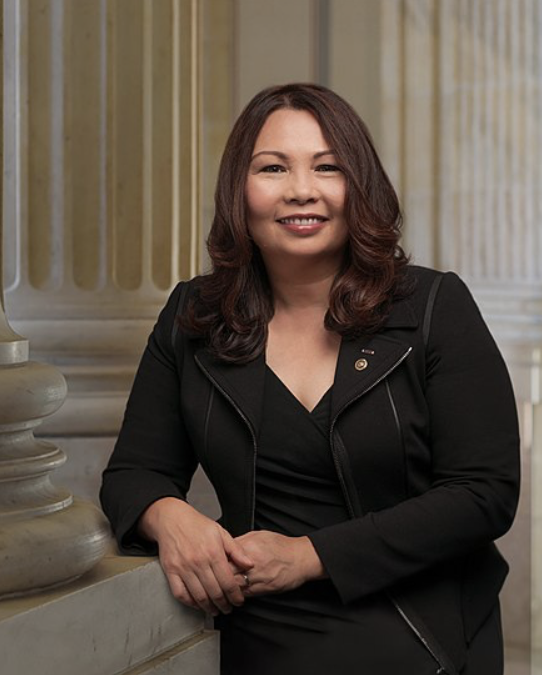Tammy Duckworth will be the First Woman in the U.S. Senate to give birth while in office. Senator Duckworth is surprised at the attention she has received since announcing her pregnancy. “It is somewhat ridiculous,” she says, “that it’s 2018 and this is such big news.”
In a recent interview Senator Duckworth explainedd that there is no maternity leave policy for the Senate, so she is “working with the administration of the Senate to set some of the ground rules and develop the policy. I guess when you’re the first one, you have the opportunity to really push to set what the rules are for everyone.” She might have added that First Women often see this opportunity as an obligation, to work for the women following them.
The fact is that Senator Duckworth will receive twelve weeks paid leave, but this is only because that is the policy in her own office. All her staffers are eligible for the paid leave. Other offices in the Senate set their own leave policies, and not all are as generous.
The federal Family and Medical Leave Act provides 12 weeks of leave for birth or adoption, but there is no mandate for employers to pay employees during the leave. For many employees this leave is unpaid. Each employer can decide how to support the benefit, and Senators are considered individual employers. Vicki Shabo, of National Partnership for Women and Families says, “Congressional staff are at the mercy of their employer and are really part of a boss lottery.”
Senator Duckworth is also a disabled veteran who served in Iraq, the First Woman double amputee in the armed services. She joins four other women serving in Congress who are combat veterans.
Duckworth will not be the First Woman to give birth while serving in Congress. Yvonne Braithwaite Burke, the First African-American Woman elected to the House of Representatives from California, gave birth in office in 1973; but it was twenty-two years before another woman gave birth while in Congress. You can count on your fingers the number of births to women serving in the entire history of the Congress.
Although the numbers are small, it may be progress for an institution that did not even provide a restroom for women Senators until the 1960’s, and then only two stalls in a converted closet. As late as 2013, it required a public outcry from the twenty women Senators before they received upgraded facilities. Perhaps paid leave for childbirth, both in the Senate and in the nation, is another opportunity for public outcry from our legislative leaders. This is not a battle Senator Duckworth should have to wage alone.

